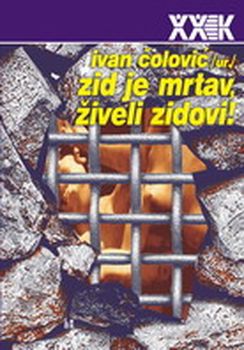
We kindly inform you that, as long as the subject affiliation of our 300.000+ articles is in progress, you might get unsufficient or no results on your third level or second level search. In this case, please broaden your search criteria.






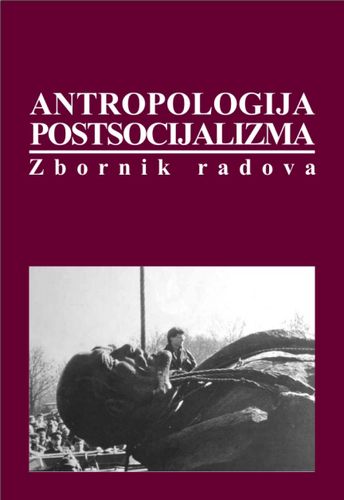
While at the macro-historical level we strive to elucidate large scale structures and processes in societies and their successive forms, on a micro-historical level attempts are made to distinguish individual and group contacts with these structures and processes so as to grasp how the public essentially perceived them. From its very beginnings, capitalist economy has been the grounds of interchange between two dominant trends: the strengthening of state intervention and the strive towards liberalisation. Such alterations in the field of economics are in correlation with the substitution of the modes of imperial hegemony.
More...
This article addresses some of the aspects the academic sphere, science and intellectual culture under postsocialism offer for the understanding of transition issues in contemporary Slovenia. It starts with the surprise that has been caused by the bizarre commodification and domestication of anthropology in Slovenia, particularly at Slovenian universities, after 1990s, and tries to reflect social reception, institutional organization and academic status of anthropology in this country. Furthermore, through a specific case study of a violent debate which recently took place in Slovenia concerning the reasons for the absence of Slovenian universities on the notorious list of top 500 world universities, it tries to illustrate the essence of how academic spheres in transitional societies function. The conclusion presents some elements of social hypocrisy and discrepancy. It reveals certain facts that have taken place within the last few years, and thus helps us understand the contribution of the Slovenian state administration for science to the process of systematic transformation of this autonomous social domain of highly intellectual work into a turbo-neoliberal enterprise of wageworkers, academic lumpenproletarians, anti-intellectual jobbers, profiteers and money-spinners.
More...
At the root of the civil war and the disintegration of Yugoslavia lies a clash of different ethnic nationalisms that considerably influenced the content of many anthropological debates dedicated to social phenomena which appeared in the context of the disappearance of the multinational state of the South Slavic peoples. Heuristically, the most productive method for an anthropological assessment of nationalisms is based upon an interpretation of the nationalistic idiom in the context of the structural preconditions on the national and global scene. In the Yugoslavia, a process of state decentralization that lasted several decades, as well as the culmination of the denationalization processes on a global scale, have preconditioned the advantage of the particularistic nationalisms of nonSerbian peoples, confronted by the integrated Serb nationalism.
More...
Media propaganda utilizes and revitalizes myths for their ability to generate nationalism. Prophesies or statements by psychics in the media, instigate and participate in the construction and reconstruction of mythologies of the Serbs in a new historical position. In this paper on the basis of discourse analysis of media propaganda, its usage in the social and political context of the nineties, is emphasized. In the prophecies, rhetoric mythical motives are being utilized: myth of the martyr and the destiny of the Serbian people as victims of a curse; the distinctions of the nation in regards of the supernatural and Para psychological motives; myth of the "golden age" that is mostly associated with the rule of Milosevic, widely considered to be the capable of leading the Serbs back to their past glory. The prophecies legitimize the existing relations of government and political dominance, construct new, or reinterpret old myths, ascribing to them new political functions that represent an element of the vital, national "mythologies of survival and identity". The usual methods of propaganda in the prophetic messages of psychics are being analyzed, and their instrumentalisation for the propagation of a model of thought magic, that is dogma free, but which relies on the psychology and the fear, are pointed out.
More...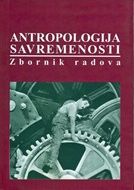
In the first section of this paper, I describe the new field in anthropology and other disciplines called transition studies, focusing on its thematic and problemic emphases, analytical, interpretive, and ideological categories. In the second section, I point to some topics that can be projected to transition studies from the phenomenological and empirical field of post-Socialist conditions in Balkan societies. The examples are two rural communities, which in the period of post-Socialism are facing new challenges – in the case of (ethnically homogenous) village Stakevci in northwestern Bulgaria, crisis of identity and survival; in the case of Orahovac, Boka Kotorska, Montenegro, the demands for the reconstruction of "national culture" in the function of preservation of ethnic, cultural and national identity.
More...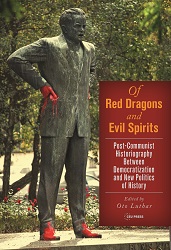
The following chapter focuses on the public memory of the recent past (World War II and its aftermath) in Bulgaria. Taking the joke seriously, I start with the constructivist assumption that the messages of the past do not spontaneously emanate from it, but rather are coined in the present to respond to current needs and interests. The past therefore “keeps changing” as a consequence of the politics of history that not only seek to negotiate the narratives about the past but also to legitimize social and political actors and their causes in the present. From this perspective, I will try to track down two simultaneous but diverging tendencies in the current Bulgarian memory constructs: what might be considered (re)nationalization of memory, and its Europeanization.
More...
World War II was the founding myth both for socialist Yugoslavia, based on the narrative of the supra-national partisan struggle, and for post-socialist Croatia, due to President Franjo Tuđman’s idea that both partisans and Ustasha had fought for the Croatian cause, albeit in different ways. How did this strong role of politics of history impact professional historiography and vice versa, what influence did the latter have? Does it make sense at all to speak of a Croatian historiography in socialist Yugoslavia—were there fields free of influence from socialist hegemonic narrative? This chapter argues that this is true for the conservative historiography before the 1960s, but also for the two currents that developed in this period: There was a growing tension between distinguished medieval studies and historians like Mirjana Gross, who established contacts with international experts, oriented themselves on new Western methodology, and promoted approaches of the Annales School on the one hand, and nationalist historians whose engagement seemed limited to verbal exchange about contemporary history with their Serbian counterparts on the other hand. This last current, represented by the later Croatian president Franjo Tuđman, became dominant after Croatia’s independence in 1991.
More...
As in many other former communist countries, a “competitive martyrdom” struggle erupted in Romania soon after the collapse of the former regime. By “competitive martyrdom” I understand the implicit or explicit attempt to exonerate the Romanian political community embodied by the state, or segments of that community, from either guilt or responsibility for having participated in World War II as a Nazi ally and from having perpetrated genocidal crimes against the Jews and the Roma. Coined by several scholars in the context of de¬bates around the extent, the limit or the desirability of emulating the alleged postwar denazification in Western Europe, competitive mar¬tyrdom is a complex issue, influenced not only by the immediate communist past and its treatment of the Holocaust in official history, but also, and above all, by socio-psychological factors linked to collective memory and to the social frameworks of the memory of specific groups within society. Furthermore, it entails also an international aspect, for the de-communizing polities strive to demonstrate their appurtenance to the democratic “international regime” and its values, but are obviously at pain when urged to confront collaboration.
More...
Here the author discusses the rise of this polarization of contemporary Slovak historiography, which was institutionalized in the 1990s, and still remains in the academic debates, and also as one of the constitutive elements in the public representations of history. The efforts to enforce a certain canonical interpretation of the past are not just a matter of politics or professionals. Academics often give it legitimacy or even create it, and are a part of the institutional networks involved in the dissemination of knowledge and ideas. Shared representations of the past are not accidentally produced by social groups, but are a consequence of cultural meditation, primarily of textualization and visualization
More...

In the following chapter, the author wants to show that the fear Andrić talked about can from time to time lull us into blindly believing those stories that know nothing about “perhaps” or “anticipation.” Or to put it more precisely, in discussing the straightforwardness of post-socialist revisionist historiography, he shows how hope in the uncensored interpretation of the past that accompanied the “end of communism” gave way to the fear of yet another strand of one-sided politics of history
More...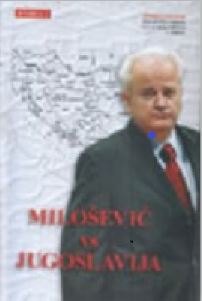

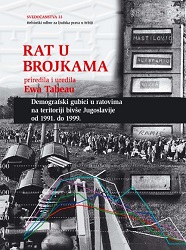
Testimony report in the LUKIĆ and LUKIĆ case (IT-98-32/1)
More...